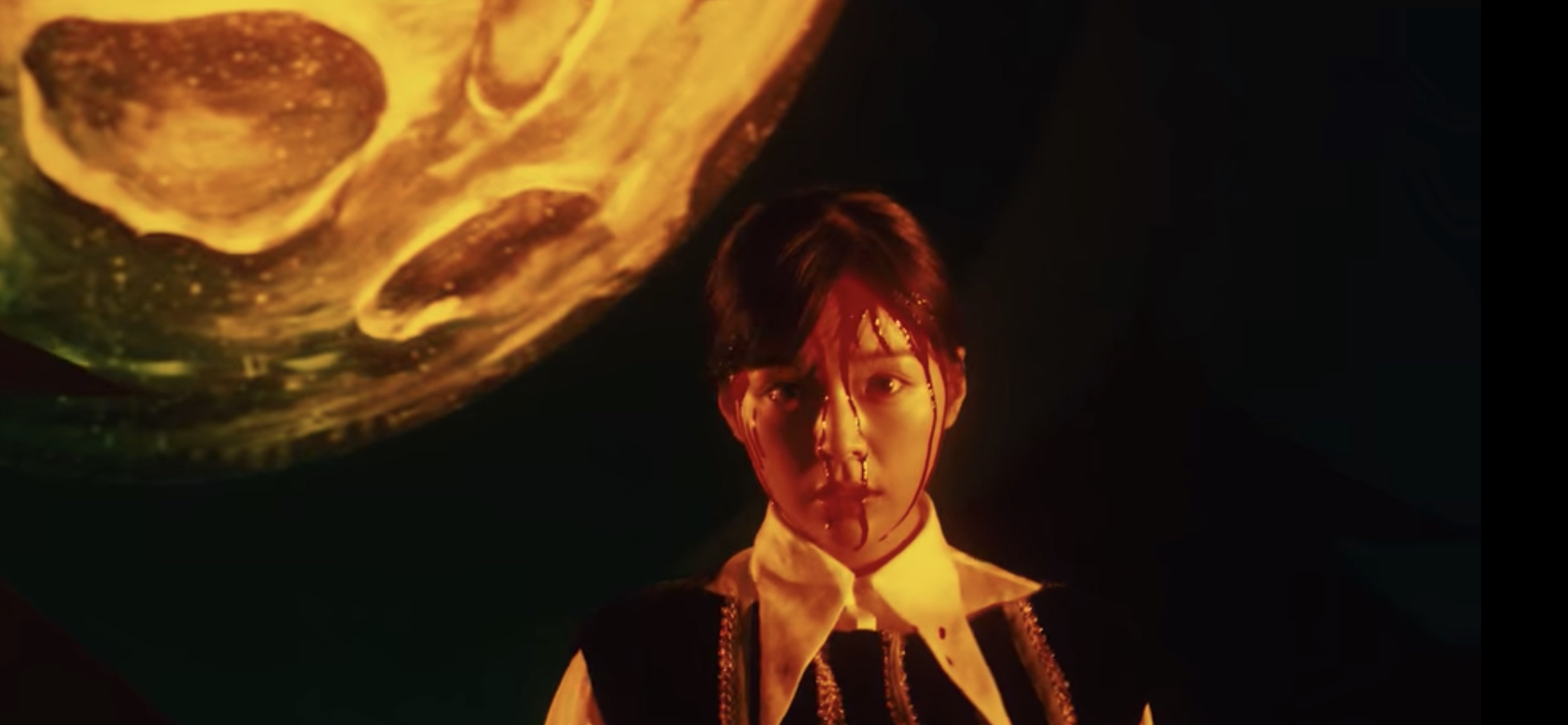Japanese filmmaker Sion Sono is known for making the films that often rely on a complex web of characters, dangerously inclined towards the dark side. With ‘The Forest of Love’, he continues this unbridled presentation of sadistic, sometimes outright depraved, part of human nature.
The film begins with an unsolved streak of murders and three young men wanting to be filmmakers. Jay and Fukami want to make a film that they can present in Pia Film Festival. In order to win the grand prize, they need a compelling story. Jay is in love with movies and believes that everything, no matter how vulgar or dangerous or bloody or illegal it might be, makes sense when it is within the frame of a film.
Another young man, named Shin, who has only recently come to Tokyo, joins in on their plan. They find a promising subject in the form of Joe Murata, a skilled conman who has been duping women for a very long time. Taeko and Mitsuki, two girls unable to break off from the spell of a tragedy in their lives, also become a part of the project. While Taeko has tried to get over her grief by overindulging in alcohol and sex, Mitsuki is a reclusive soul finding comfort in an imaginary form of her lost love. Jay’s film provides a way for both of them to break out of their individual torments. Meanwhile, a serial killer is on the loose in the city.
‘The Forest of Love’ is divided into various chapters, each of them marking a drastic shift in the psyche of its characters. The Prologue sets the stage very well, giving us a glimpse into their backgrounds, their motivations and the connections between them. With every step, the scale of its darkness and gore increases exponentially, and we see the picture painted with broad strokes of sadomasochism, psychopathy, violence and a deranged sense of dedication.
The more time you spend in the vicinity of its characters, the more you begin to wonder about the animal inside of man. Whatever it started out with is stripped away, one layer at a time, until it comes down to being entirely about the wretchedness of its subjects. However, despite its alluring content and strong direction, the film pales in comparison to previous works by Sono. The most important thing that holds it back is its length. At almost two-and-a-half hours, it is unnecessarily long. Had it received a crisper editing, it would have been more impactful in not just the twist it delivers at the end, but also on the front of exploring the degrading morality of its characters.
The film often indulges in savagery, and even though it is an essential part of the story, there are some places where not showing the complete perverted process would have rendered it more brutal. Similarly, instead of thoroughly traversing the past of certain characters, a glimpse would have allowed more indulgence of the audience, keeping them busy with the mystery that otherwise becomes predictable.
The flaws of ‘The Forest of Love’ might diminish its entertainment value, but don’t exhaust it entirely. The characters are too compelling to let go of, and the actors inhabit them skillfully. Kippei Shina’s portrayal of Joe Murata stands out the most. It is easy to hate him due to his sadistic and self-serving actions. Yet, it is also not beyond the grasp of understanding how he exerts such intense influence on the people around him. Murata is the kind of person a sane person wouldn’t ever want to cross paths with, and Shina’s dedicated performance makes him an even viler character. The sheer absence of empathy creates a clear distinction between him and others.
Eri Kamataki breathes life into Mitsuko, a character that goes through an extremely rough arc and hence demands greater finesse in its depiction. Her innocent looks stand in stark contrast to the atrocious self-destructive tendency of the role she assumes in this film. In a similar feat, other actors live up to the potential of their parts and give the story essential support to move forward. Sono is dedicated to every character and focuses on all of them amply, bringing their arcs to rational conclusions. All the subplots are tied up, some less deftly than others. The ending of ‘The Forest of Love’ provides enough food for thought to keep the viewer invested in the story even when it has ended. It is one of the better parts of the film and only elevates it further.
Overall, it is a beguiling experience for someone who is not bothered by its uncurbed duration. It delves into tantalizing themes, like seeking comfort in suicide pacts and finding carnal pleasure in violent acts. Staying consistent with Sono’s previous works, this film effects a lot of emotions, yet remains a mixed bag in the end.
Rating: 3/5

